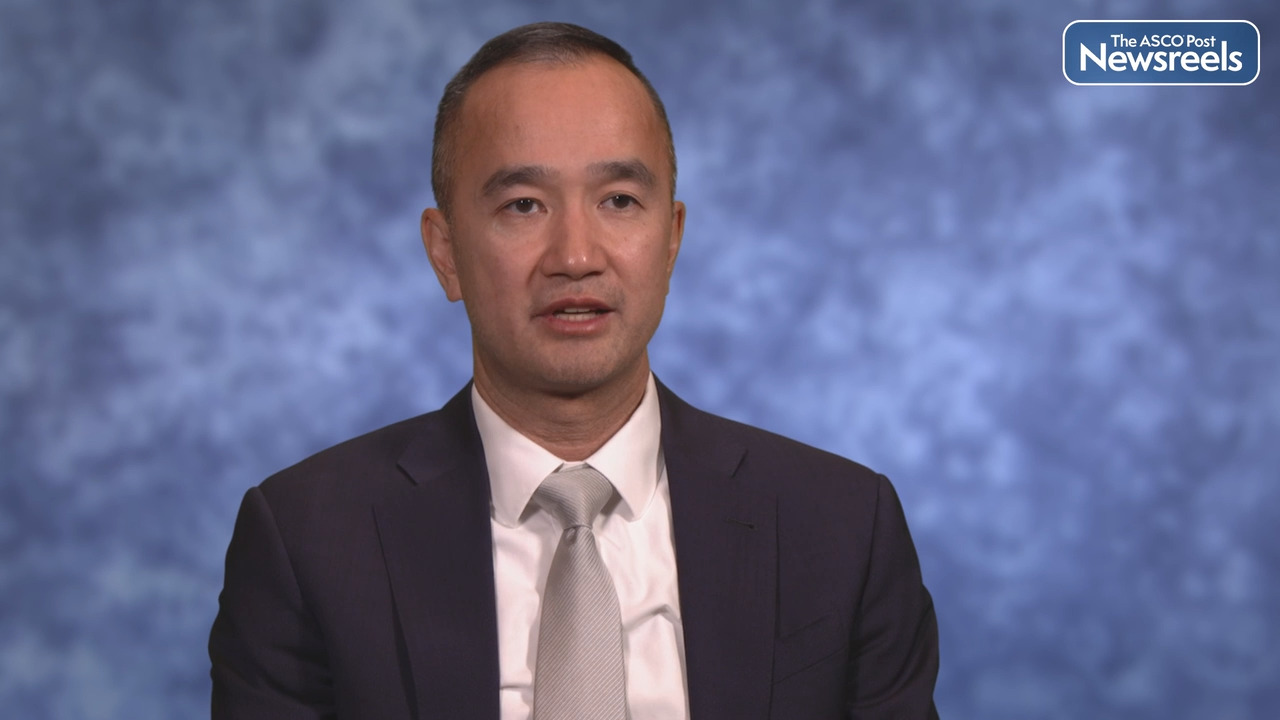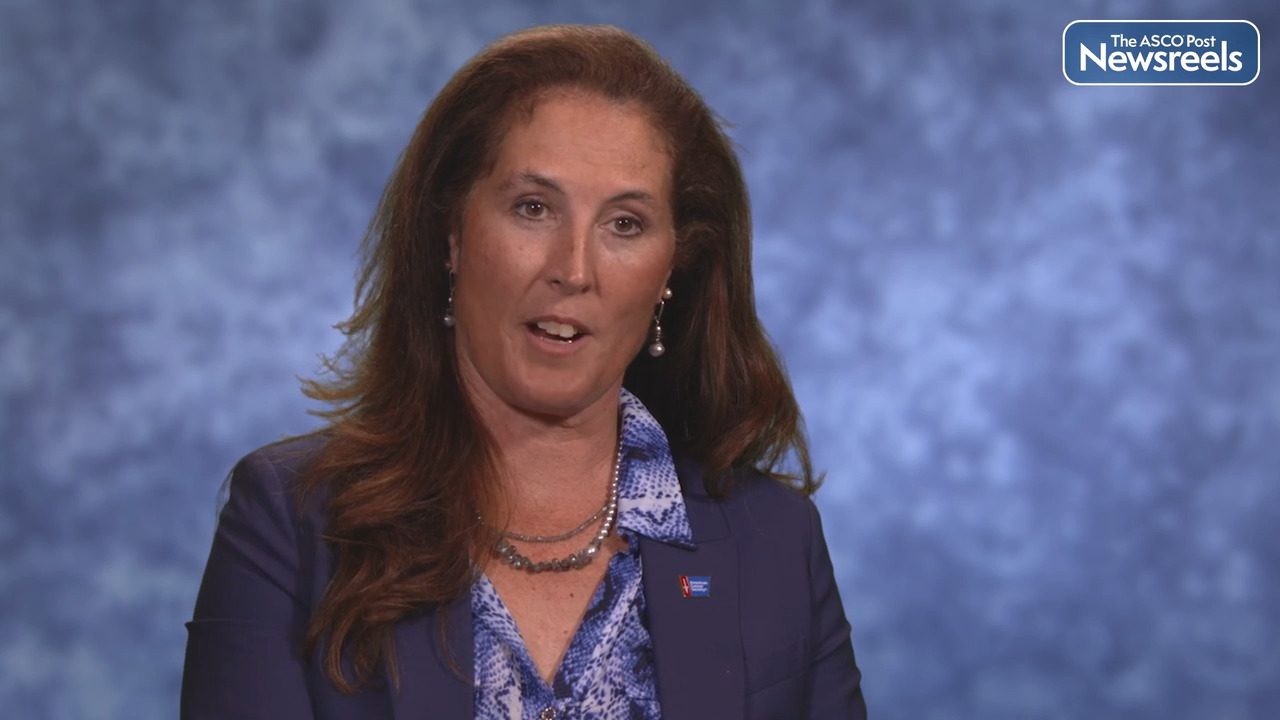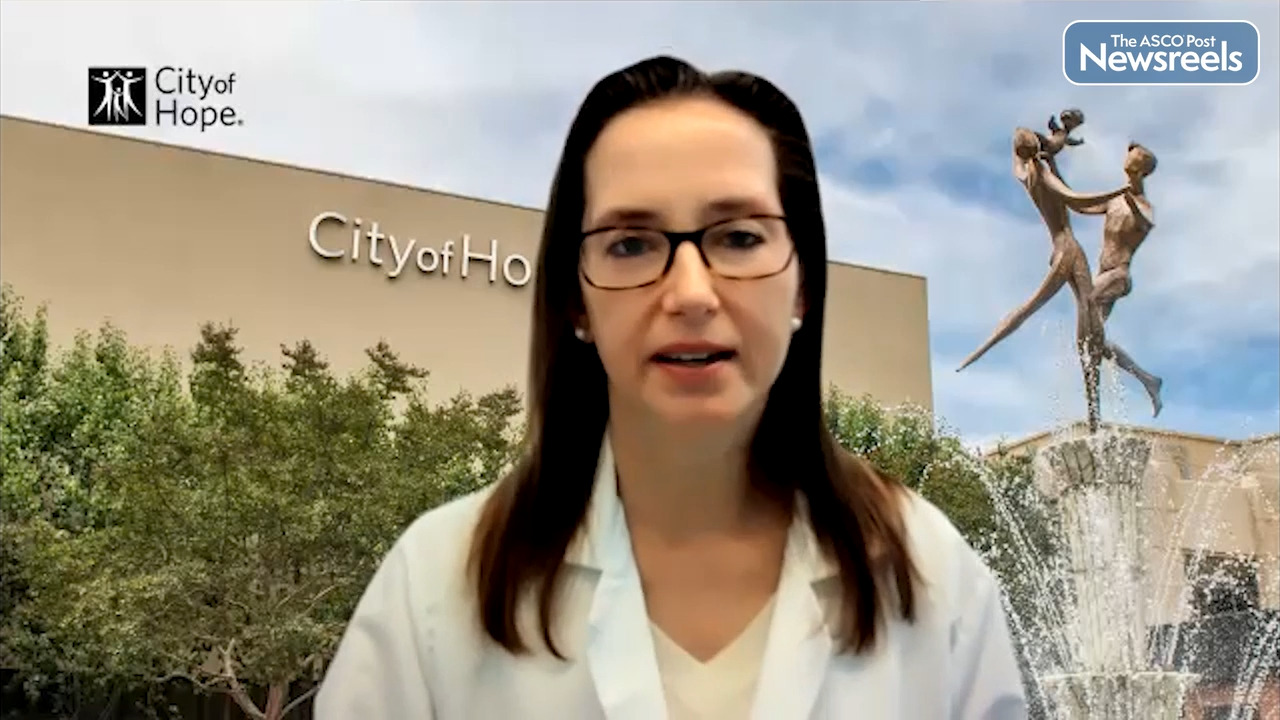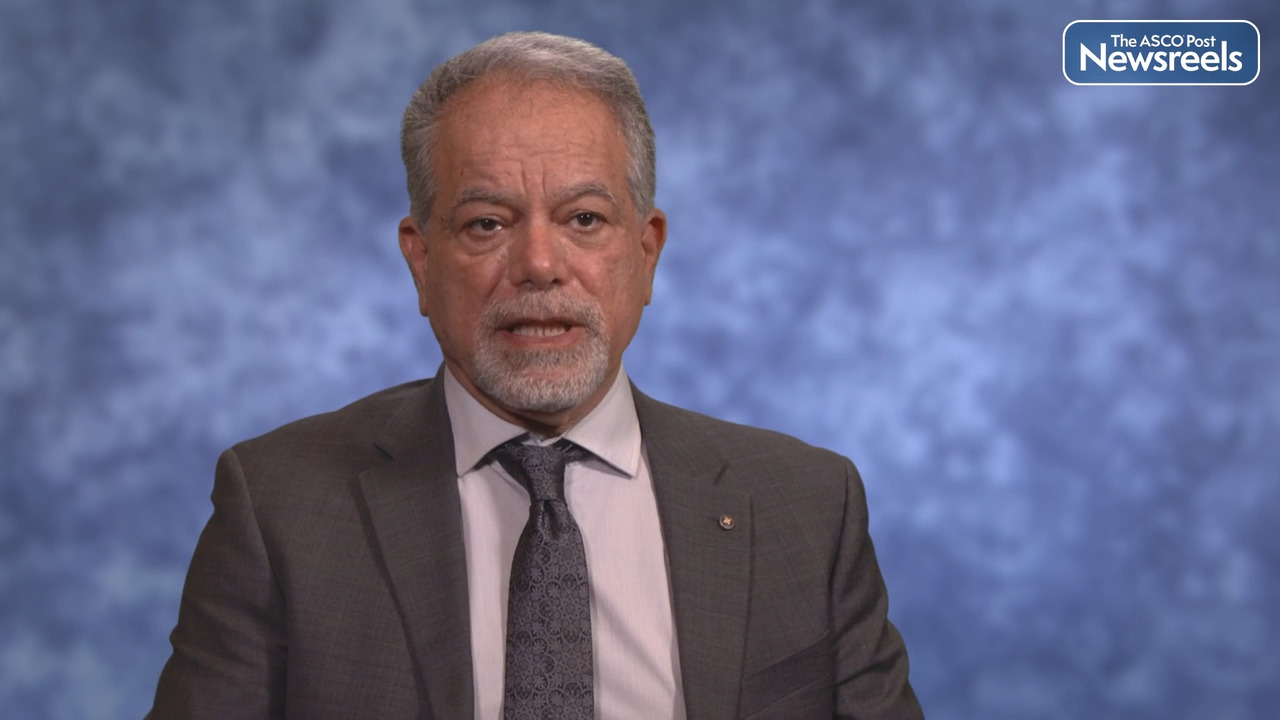Alicia K. Morgans, MD, MPH, on Prostate Cancer: Profiles of Patients and Their Journeys
2022 ASCO Genitourinary Cancers Symposium
Alicia K. Morgans, MD, MPH, of Dana-Farber Cancer Institute, discusses findings from the largest digital survey conducted in patients with prostate cancer, allowing identification of unmet needs in the patient journey. Preliminary data suggest that lower rates of screening may correlate with higher rates of symptoms at diagnosis and potentially later-stage diagnosis.
The ASCO Post Staff
Matthew R. Zibelman, MD, of Fox Chase Cancer Center, discusses phase I/II results from a study of treatment-naive patients with advanced renal cell carcinoma who received a combination of the immunotherapy (IO) nivolumab and the tyrosine kinase inhibitor (TKI) axitinib. The findings suggest that the efficacy of this regimen is comparable to that of currently available IO/TKI combinations for this population and has a similar safety profile (Abstract 291).
The ASCO Post Staff
Kim Nguyen Chi, MD, of the University of British Columbia, BC Cancer-Vancouver Center, discusses first phase III results from the MAGNITUDE study, which explored the use of the PARP inhibitor niraparib with abiraterone acetate and prednisone as first-line therapy in patients with metastatic castration-resistant prostate cancer with and without homologous recombination repair gene alterations (Abstract 12).
The ASCO Post Staff
Karen E. Knudsen, PhD, MBA, Chief Executive Officer of the American Cancer Society, discusses ways to address the inequities in genitourinary screening, treatment, and outcomes. Her suggestions focus on increasing awareness of screening, identifying risk factors, the dramatic rise in incidence among Hispanic individuals, and the basis for increased mortality in Black men.
The ASCO Post Staff
Tanya B. Dorff, MD, of City of Hope National Medical Center, discusses the first-in-human phase I findings showing that prostate stem cell antigen (PSCA) CAR T-cell therapy is feasible in patients with metastatic castration-resistant prostate cancer, with preliminary antitumor activity exhibited.
The ASCO Post Staff
Fred Saad, MD, of the University of Montreal Health Centre, discusses phase III findings demonstrating for the first time the clinical benefits of olaparib plus abiraterone in patients with metastatic castration-resistant prostate cancer, irrespective of their homologous recombination repair mutation status. This regimen led to significantly longer radiographic progression-free survival than placebo plus abiraterone (Abstract 11).





